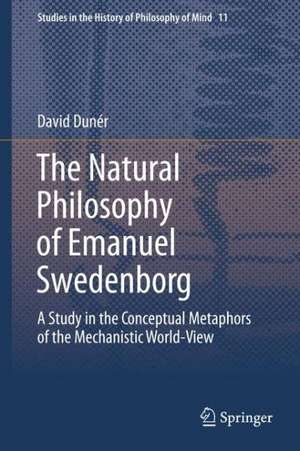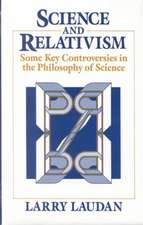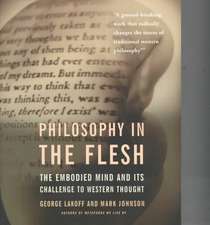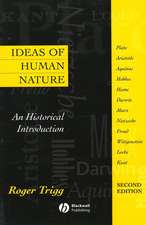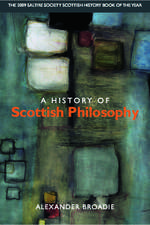The Natural philosophy of Emanuel Swedenborg: A Study in the Conceptual Metaphors of the Mechanistic World-View: Studies in the History of Philosophy of Mind, cartea 11
Autor David Duneren Limba Engleză Paperback – 21 sep 2014
| Toate formatele și edițiile | Preț | Express |
|---|---|---|
| Paperback (1) | 1051.82 lei 38-44 zile | |
| SPRINGER NETHERLANDS – 21 sep 2014 | 1051.82 lei 38-44 zile | |
| Hardback (1) | 1060.06 lei 38-44 zile | |
| SPRINGER NETHERLANDS – aug 2012 | 1060.06 lei 38-44 zile |
Din seria Studies in the History of Philosophy of Mind
- 20%
 Preț: 689.96 lei
Preț: 689.96 lei - 15%
 Preț: 649.54 lei
Preț: 649.54 lei -
 Preț: 387.75 lei
Preț: 387.75 lei - 18%
 Preț: 1571.77 lei
Preț: 1571.77 lei - 18%
 Preț: 731.91 lei
Preț: 731.91 lei - 20%
 Preț: 572.09 lei
Preț: 572.09 lei - 15%
 Preț: 653.79 lei
Preț: 653.79 lei - 18%
 Preț: 733.33 lei
Preț: 733.33 lei - 15%
 Preț: 481.34 lei
Preț: 481.34 lei - 15%
 Preț: 647.92 lei
Preț: 647.92 lei - 15%
 Preț: 582.45 lei
Preț: 582.45 lei - 15%
 Preț: 643.16 lei
Preț: 643.16 lei - 18%
 Preț: 785.42 lei
Preț: 785.42 lei - 15%
 Preț: 651.34 lei
Preț: 651.34 lei - 18%
 Preț: 721.19 lei
Preț: 721.19 lei - 15%
 Preț: 635.80 lei
Preț: 635.80 lei -
 Preț: 448.58 lei
Preț: 448.58 lei - 15%
 Preț: 695.70 lei
Preț: 695.70 lei -
 Preț: 383.93 lei
Preț: 383.93 lei - 18%
 Preț: 727.66 lei
Preț: 727.66 lei - 18%
 Preț: 720.53 lei
Preț: 720.53 lei - 18%
 Preț: 952.89 lei
Preț: 952.89 lei - 15%
 Preț: 695.85 lei
Preț: 695.85 lei - 18%
 Preț: 1390.26 lei
Preț: 1390.26 lei - 18%
 Preț: 953.35 lei
Preț: 953.35 lei - 18%
 Preț: 944.99 lei
Preț: 944.99 lei
Preț: 1051.82 lei
Preț vechi: 1383.96 lei
-24% Nou
Puncte Express: 1578
Preț estimativ în valută:
201.29€ • 209.37$ • 166.18£
201.29€ • 209.37$ • 166.18£
Carte tipărită la comandă
Livrare economică 10-16 aprilie
Preluare comenzi: 021 569.72.76
Specificații
ISBN-13: 9789400798212
ISBN-10: 9400798210
Pagini: 488
Ilustrații: XII, 476 p.
Dimensiuni: 155 x 235 x 26 mm
Greutate: 0.68 kg
Ediția:2013
Editura: SPRINGER NETHERLANDS
Colecția Springer
Seria Studies in the History of Philosophy of Mind
Locul publicării:Dordrecht, Netherlands
ISBN-10: 9400798210
Pagini: 488
Ilustrații: XII, 476 p.
Dimensiuni: 155 x 235 x 26 mm
Greutate: 0.68 kg
Ediția:2013
Editura: SPRINGER NETHERLANDS
Colecția Springer
Seria Studies in the History of Philosophy of Mind
Locul publicării:Dordrecht, Netherlands
Public țintă
ResearchCuprins
1. Introduction.- 2. The space.- 3. The Sign.- 4. The wave.- 5. The sphere.- 6. The point.- 7. The spiral.- 8. The infinite.- 9. Conclusion.
Textul de pe ultima copertă
Although Emanuel Swedenborg (1688–1772) is commonly known for his spiritual philosophy, his early career was focused on natural science. During this period, Swedenborg thought the world was like a gigantic machine, following the laws of mechanics and geometry. This volume analyses this mechanistic world-view from the cognitive perspective, by means of a study of the metaphors in Swedenborg’s texts. The author argues that these conceptual metaphors are vital skills of the creative mind and scientific thinking, used to create visual analogies and abstract ideas. This means that Swedenborg’s mechanistic and geometrical world-view allowed him to perceive the world as mechanical and geometrical. Swedenborg thought "with" books and pens. The reading gave him associations and clues, forced him to interpret, and gave him material for his intellectual development.
Caracteristici
Comprehensive study of Emanuel Swedenborg's mechanistic worldview and metaphorical way of thinking up to the year 1734 New perspective of the mechanistic philosophy of the 17th and 18th century: the cognitive metaphors of the mind and its role in the formation of scientific theories Casts new light on Swedenborg's later spiritual philosophy and doctrine of correspondences Winner of the Pro Lingua Translation Award for promoting eminent Swedish research?
